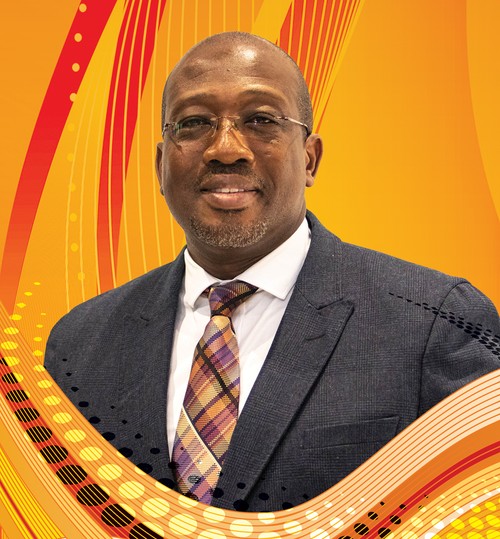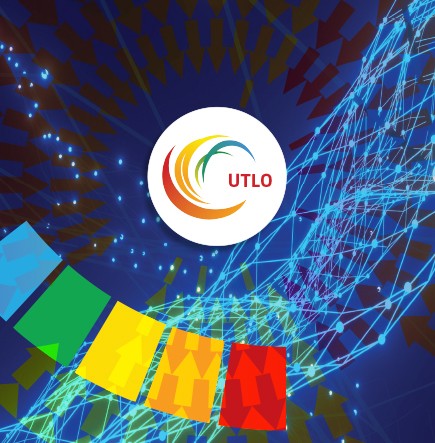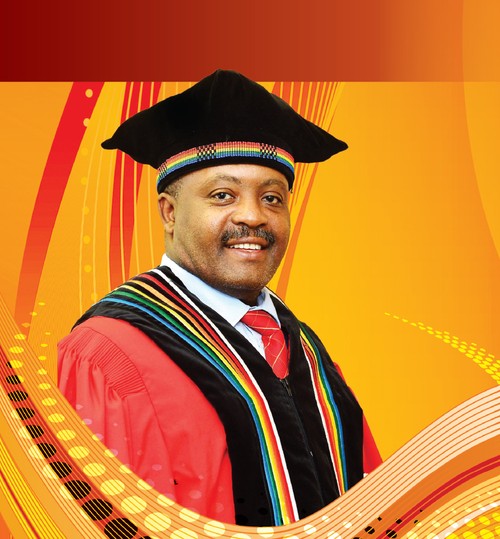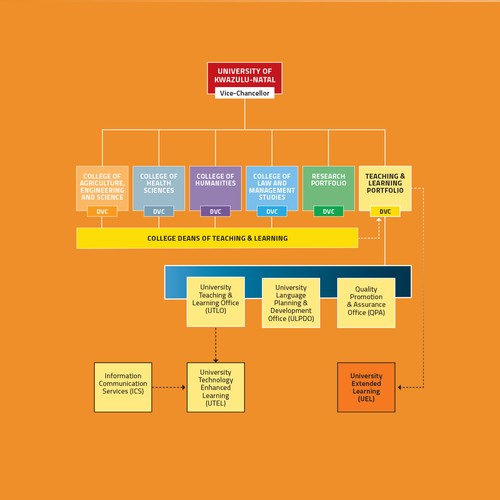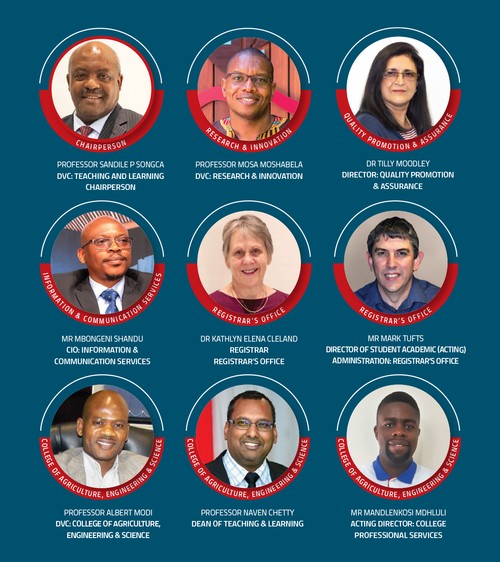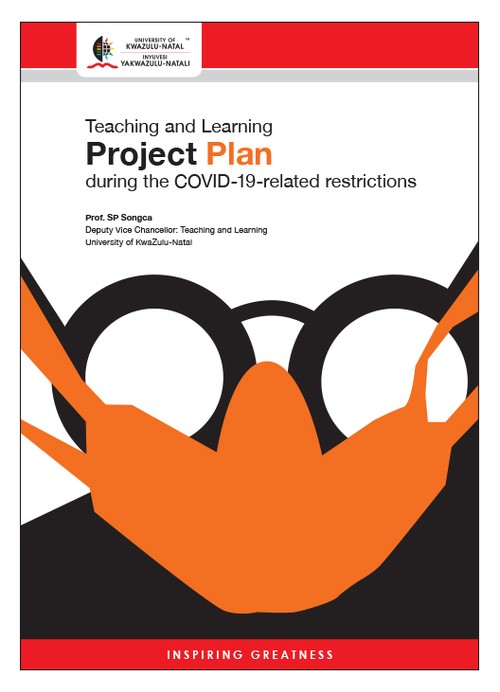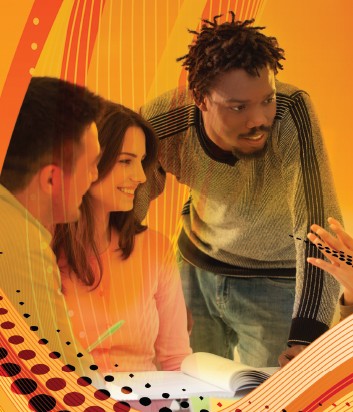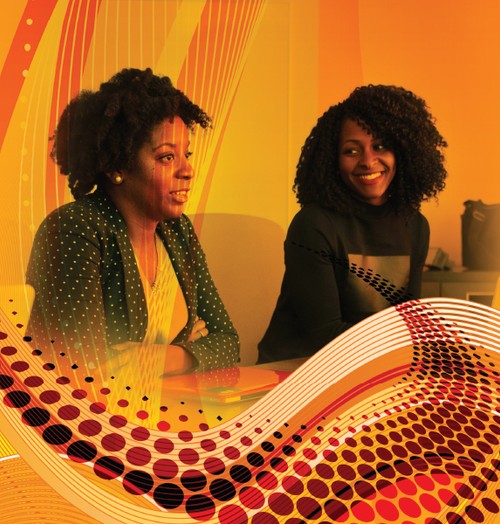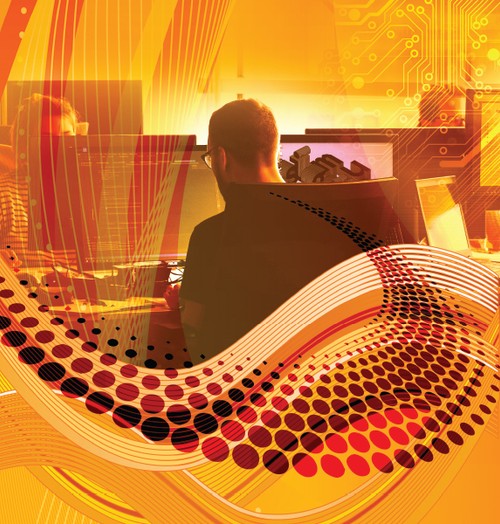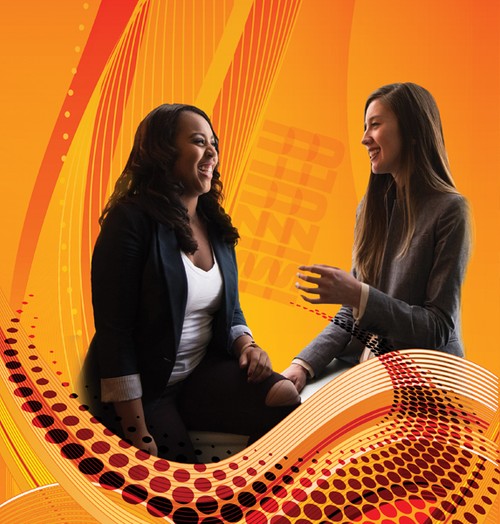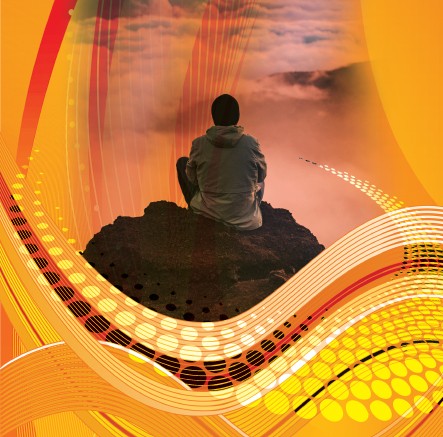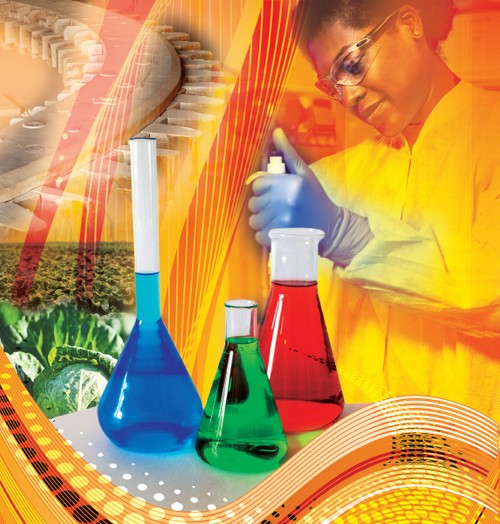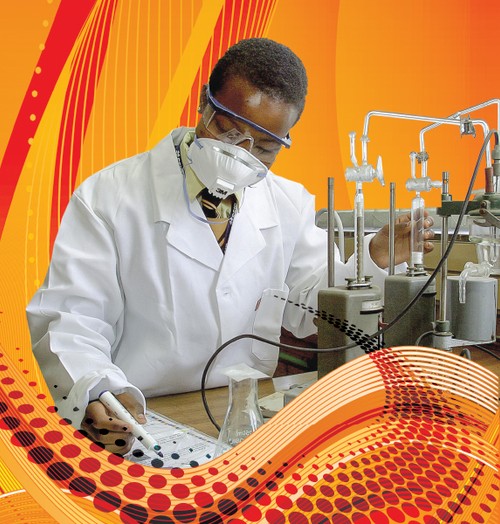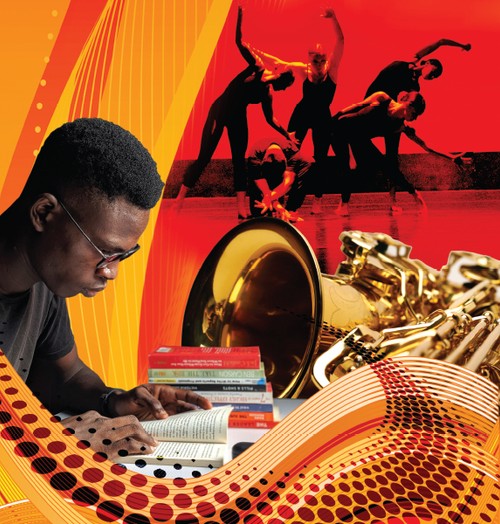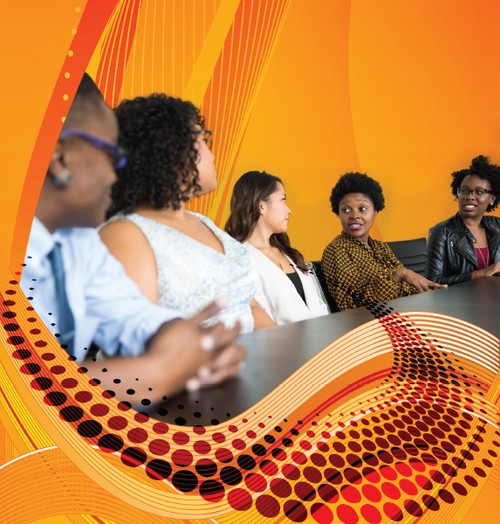The COVID-19 pandemic created unforeseen challenges and circumstances, causing disruption of teaching and learning activities in the University as a whole. It necessitated and accelerated the Teaching and Learning (T&L) Unit in the College of Agriculture, Engineering and Science’s (CAES) engagement with digitally-enabled education to ensure uninterrupted and quality T&L. This initiative was led by Professor Naven Chetty (Dean, Teaching & Learning), and supported by Dr Boby Varghese (Head, Centre for Academic Success in Science and Engineering), Academic Leaders (Teaching & Learning) of the various Schools, the Academic Development Officers (ADOs), and the Teaching and Learning Coordinator in the College to ensure remote continuation of teaching and learning activities via online platforms. .
While the activities undertaken during the second half of 2020 (2020 semester 2) primarily focused on improving the online offering of T&L and Academic Monitoring and Support (AMS) to students, the focus of T&L in 2021 was to equip all stakeholders with blended learning technologies to improving the effectiveness of remote T&L. The T&L leadership envisaged that the most significant future benefits of virtual instruction will be apparent after academic staff and students return to their physical classrooms. The necessity of T&L with asynchronous and synchronous platforms will yield significant benefits when these methods are layered into face-to-face instruction once the pandemic is over. With this in mind, the College introduced innovative ways to ensure that staff members were equipped with the required knowledge, skills, and resources to manoeuvre this period and ensure student success at the end of the academic year. It was proactive in setting up and maintaining a website for T&L with all the teaching and learning resources that academic staff could use and updated information for students to undertake effective remote learning.
A summary of T&L activities undertaken in the CAES during the 2020/2021 period is presented below under: (1) T&L training courses/ workshops, (2) community engagement, (3) The first-year experience, (4) technology enhanced learning, (5) teaching innovations, (6) curriculum transformation, (7) success stories, (8) research on T&L, and (9) academic monitoring and support. The majority of these activities were funded by the UCDP.
Teaching and Learning Courses/Workshops
The School of Life Sciences (SLS) adopted a three-pronged approach to improve its T&L praxis in 2021: (1) to instil greater sensitivity to academic integrity in students, (2) to improve the School’s approach to dealing with plagiarism and cheating, and (3) to improve assessment practices to limit the potential for plagiarism in assessments. These objectives were achieved through the SLS Academic Integrity Course (AIC), a dedicated plagiarism workshop and an assessment workshop.
Academic Integrity Course
The AIC course was developed with the ADDIE model of instructional design, and the five phases (Analysis, Design, Development, Implementation, and Evaluation) applied to handle large numbers of students with minimal course administration, as well as ensuring student engagement with the content. The course was also envisaged as an educative, rather than a punitive platform, aimed at reinforcing the positive aspect of academic integrity as a choice.
Plagiarism Workshop
The SLS organised a plagiarism workshop on 7 September 2021, facilitated virtually via MS Teams, that attracted 48 attendees most of whom were academic staff from three Schools in CAES, and the Proctor, Ms Nombuso Shange. The programme covered the three core aspects of the current UKZN Plagiarism Policy and Procedures - training, detection and prosecution. Training was discussed with reference to the SLS AIC, and detection with reference to the use of Turnitin as a plagiarism checker, with cautionary notes regarding interpretation of the Turnitin similarity score.
The process of prosecution requires alignment of the School process (facilitated by Dr Dalene Vosloo) and the Proctor processes (facilitated by Ms Nombuso Shange). A plea was made for greater vigilance and consistency in detection and prosecution of plagiarism in all SLS modules and clusters.
In closing the meeting, the time-consuming nature of prosecution was noted as well as the fact that prevention through training and robust assessment strategies is the best long-term strategy to curb plagiarism in SLS modules. Academic staff from other Schools also took part in the deliberations and shared their experiences of plagiarism and the need to educate students. The College ADOs also developed a training video on plagiarism and its consequences which was uploaded on the T&L website for further dissemination.
Assessment Workshop
A total of 42 participants from five Schools attended an assessment workshop on 1 October 2021 aimed at increasing the robustness of online assessment in the SLS. The plagiarism workshop concluded that robust assessment is the best insurance against plagiarism, cheating and collusion, and the assessment workshop provided an opportunity for alignment and best practices. The workshop also aimed to guide progression between semesters and levels to ensure constructive alignment of assessment in the various qualifications as well as improve assessment practices for multiple choice and essay questions.
As part of the CAES digital T&L workshops, Dr A Matthews presented on online assessments which was useful for all the academics in the College.
Curriculum Development Workshop
A curriculum development workshop was held for academics in the School of Agriculture, Earth and Environmental Sciences (SAEES) on 29 July 2021, with workshop content developed by Professor Suna Kassier (Dietetics and Human Nutrition) in conjunction with Dr Zanele Masuku (QPA College Quality Consultant: Agriculture, Engineering and Science). The presenters were Dr Masuku and Dr Thabile Mtombeni (QPA College Quality Consultant: Law and Management Studies). The event was especially well attended by staff from the discipline of Dietetics and Human Nutrition and the Geological Sciences Cluster.
The discipline of Dietetics is in the process of developing a curriculum for a new health professional referred to as a Dietitian-Nutritionist while Geological Sciences are also restructuring their curriculum.
PhD Teacher Training Programme
The College T&L Unit initiated a two-year PhD teacher training programme in 2021. Funded by the UCDP, it consists of a series of capacity building workshops for emerging academics within CAES. Twenty-one students were nominated by the different Schools in the College for the initial level of the programme which has been completed. The following workshops were run in 2021 as part of the programme:
NVIVO Data Analysis Workshop
A two-part NVIVO data analysis workshop was held for postgraduate students in the College. The sessions covered the following content: tour of the interface, the design framework, importing files, importing social media and web pages, exporting and importing references from bibliography packages, creating cases from one-on-one interviews, etc.
 Table 8: Workshops 2021 – Phd Teacher Training Programme
Table 8: Workshops 2021 – Phd Teacher Training Programme
Community Engagement
Bridging the Gap
The College T&L Unit held a virtual engagement with the principals and Heads of Departments (HODs) of a few UKZN feeder schools in KZN in December 2021. The aim was to discuss the articulation gap between school and university, specifically within mathematics and science subjects. This gap has been cause for concern for several years, and has been exacerbated as a result of the COVID-19 pandemic. Many students in schools across the country study Mathematics Literacy rather than Pure Mathematics, which rules them out of entering certain University qualifications. Meaningful interventions to address this articulation gap require collaboration between key role-players in the secondary school and university communities. The HODs of the Maths and Science Departments and school principals shared their experiences and discussed the key issues which provided a better understanding of the challenges faced within schools.
The issues discussed included curriculum matters, specifically pedagogical issues in school. The ways in which we can collaboratively increase STEM (Science, Technology, Engineering & Mathematics) student intake and their subsequent success was also reflected upon. Overall, this was a fruitful engagement and further meetings will be held in the future to bolster the school-University partnership.
Matric and Grade 11 Revision Sessions
Various revision sessions in Physical Sciences, Mathematics, and Life Sciences were organised by the College T&L Unit as part of CAES community service and UKZN branding in schools in catchment areas and beyond. With the help of the College Public Relations Office, these sessions were advertised to various schools and the first session was held on 29 October 2021. The sessions took place via Zoom, with dedicated email lines for communication with tutors. The ADOs in the College were responsible for setting up and administration, organising, and planning the online sessions. Lecturers and tutors were appointed to teach and facilitate these sessions. Several students from various KZN and Gauteng schools attended these sessions and they commended the initiative.
First-Year Catch-up Programme
A catch-up (extended tutorial) programme was implemented for all level 1 gatekeeper modules to enable late-registered first-year students to catch up with the module content. The sessions were conducted either on weekends or late in the evening to allow more student participation and uptake. The catch-up sessions were organised in both semesters of 2021. Relevant details on these sessions were updated on the College’s T&L website.
Technology Enhanced Learning
The College T&L Unit has embraced the fact that online teaching and learning is here to stay. Accordingly, curation of teaching material for alignment with online pedagogy and learning objectives is given priority, along with procurement of effective proctoring software.
The SLS developed an Online Teaching and Learning Support Platform on Moodle which consisted of curated online resources to record lectures, videos, animations and simulations as teaching aids, live teaching/virtual classrooms, discussion fora and chat rooms, collaborative learning, curation and creating, assessment, Moodle tips and tricks, virtual labs, etc. to capacitate academics for effective teaching online.
Plagiarism is a rising challenge with online learning and academics in the CAES have been seeking ways to mitigate this. Dr Mervlyn Moodley in the School of Chemistry and Physics (SCP) compiled a document on how to set up multiple choice questions on Moodle using wildcard selections that allow shuffling of numeric questions for each student. This was useful in reducing plagiarism to an extent and was used by a number of academics in the School.
The SCP made use of “Learn Science” software to familiarise students with laboratory glassware, simple instrumentation and equipment and to instil some pre-lab understanding of what they will be doing in the lab for a particular practical lesson. This was particularly effective during the pandemic imposed non-contact teaching situation. The School also held several seminars where a Fulbright visiting professor, Professor Ellane Park shared her experiences of online T&L from a US perspective and the online teaching tools she had found useful in working with her students.
Teaching Innovations
The SLS revised the Community of Practice (CoP) developed for online teaching and learning (currently in a third revision). The CoP aims “to bridge the gap between institutional T&L plans and the everyday implementation of T&L within the context, reality, and constraints at the contact point between student and lecturer” and is fully integrated with the SLS Student Guide to Online Learning.
An electronic practical allocation system was developed by Dr A Ezugwu and his team to promote easy and effective allocation of practical days and times for registered students. The system is ready to be used and will be implemented in 2022.
As an adaptation to pandemic-imposed online T&L, Dr Amery in the School of Mathematics, Statistics and Computer Science (SMSCS) followed the flipped-classroom approach where students had access to videos and online learning material on Moodle prior to the timetabled virtual sessions. The lecturer used the timetabled virtual sessions to discuss the learning content and solicit discussions from students in an effort to ensure active learning.
Curriculum Transformation
The SCP held a T&L workshop that focused on revising the first-year curriculum with Dr Margret Blackie who gave the inaugural presentation on “Curriculum Reform in First Year Science”. This was followed by presentations by Dr Mervlyn Moodley and Professor Mathew Akerman focusing on first-year throughput and highlights from the school review, respectively. Breakaway groups in the respective disciplines then discussed revision and improvement of first-year offerings.
Success Stories
Ms Maurine Songa, a PhD student under Dr Amery in SMSCS, was invited to speak at the Black Heroes of Mathematics Conference hosted by the Institute of Mathematics and its Applications, UK from 5 to 6 October 2021. She presented on “Heroes of Mathematics: The Power of Narrating their Stories” in which she narrated how she build herself up from humble beginnings and made use of every opportunity that came her way.
Ms Songa completed her undergraduate studies at the University of Nairobi in Kenya, followed by a postgraduate diploma at the African Institute for Mathematical Sciences and a Master’s at UKZN on the topic of categorical systems biology. She is currently conducting PhD research on the use of causal-set theory to unify notions of gravity and the quantum realm under the supervision of Dr Amery and Professor Baboolal.
 Figure 24: Ms Maurine Songa, presenting at the Black Heroes of Mathematics Conference
Figure 24: Ms Maurine Songa, presenting at the Black Heroes of Mathematics Conference
Scholarship of Teaching and Learning
Academic Monitoring and Support staff with the guidance and support of the College Dean (T&L), Professor Naven Chetty are involved in research on various aspects of T&L. The projects, which are currently in different stages of completion, include:
- Online/blended learning and cognitive overload: Investigating problematic areas and exploring possible interventions for science students at UKZN.
- Effectiveness of supplemental instruction in isiZulu.The ADOs also presented the following papers at the 8th AMS Research Colloquium (2021) hosted by the College of Law and Management Studies:
- Academic monitoring and support in the College of Agriculture, Engineering and Science.
- The education sector has been disrupted by COVID-19.
- The impact of SI on the academic career of former SI leaders in the College of Agriculture, Engineering and Science.
- Academic staff experiences during emergency remote online teaching and learning.
- Engineering students at a South African University’s Perceptions of online supplemental instruction (SI): Prospects of enhancing online SI efficacy.
Dr Vino Paideya published the following research article during the period under review:
- Paideya (2020). Understanding Remote Teaching and Learning Challenges amidst the COVID-19 Pandemic to Enhance Professional Development: A Systematic Review of Peer-Reviewed Journal Articles, 2012 – 2020. Alternation African Scholarship Book Series, South Africa, Vol 3, pp. 142 – 161. ISBN: 978-0-9869936-4-0, DOI Number: https://doi.org/10.29086/978-0-9869936-4-0/2020/AASBS03.
Academic Monitoring and Support
All the Academic Monitoring and Support (AMS) programmes (SI, HOT seat tutorials, Writing Place, Peer Mentorship Programme, Residence Tutorials, and Academic Advising) were offered remotely via online platforms such as Moodle, Zoom and MS Teams. The number of students impacted by AMS from mid-2020 to end of 2021 is set out in Table 6.
 Table 9: Number of Students Impacted by AMS in the CAES (2020 S2 – 2021 S2)
Table 9: Number of Students Impacted by AMS in the CAES (2020 S2 – 2021 S2)
Supplemental Instruction sessions
Supplemental Instruction (SI) is an academic support programme that centres on active and collaborative learning. The sessions were facilitated by senior undergraduate/postgraduate students for undergraduate modules perceived to have difficult content, those with high enrolment numbers and gatekeeper modules across levels 1 to 3. In line with the University rules pertaining to COVID-19 restrictions, SI sessions were carried out remotely via platforms such as ZOOM, MS TEAMS and Learn2021.
HOT seat tutorials
HOT seat tutorials were also conducted remotely via WhatsApp and MS Teams, with postgraduate students available during specified times to assist students with their queries.
Writing Place
The Writing Place primary focussed on assisting students with practical write-ups, mini-dissertations, thesis writing, and PowerPoint presentations. The tutors are postgraduate students from the School offering the programme who have demonstrated strong writing and editing skills. In 2021, SLS, SE and SAEES made use of this programme to assist their students with writing skills.
Mentorship programme
Peer mentors were appointed to assist FTEN students to integrate with the University. Peer mentors assisted the students with registration, accessing learning material online and various other academic and social activities. This programme changed slightly in the second semester of 2021. Renamed the Wellness Mentor Programme, its purpose was to provide continued support to the students. Wellness mentors met once a week with students via virtual platforms to discuss academic or social issues faced by the students and refer them to the appropriate staff for further assistance. This programme was a joint collaboration between Student Support Services and the ADO unit within the CAES.
Academic Advising
The ADOs have assisted students with curriculum advising at the beginning of each semester; as such, they have been an integral part of the registration process in the College for both returning and new students. The ADOs check students’ curriculum to ensure that it is aligned with the degree structure as outlined in the College Handbook and advise them accordingly. They also monitor students’ academic progress throughout the year and ensure that students who face academic and personal issues that hinder their academic progress are timeously assisted. During the period under review, these activities took place remotely via phone calls, ZOOM meetings and emails.
Workshops for students
Several workshops were organised by the AMS staff via online platforms aimed at assisting students with various academic issues and adapting to remote learning challenges. They included report writing skills, understanding the degree structure, the ROBOT system, the importance of proper record keeping, navigating continuous assessment and time management.
